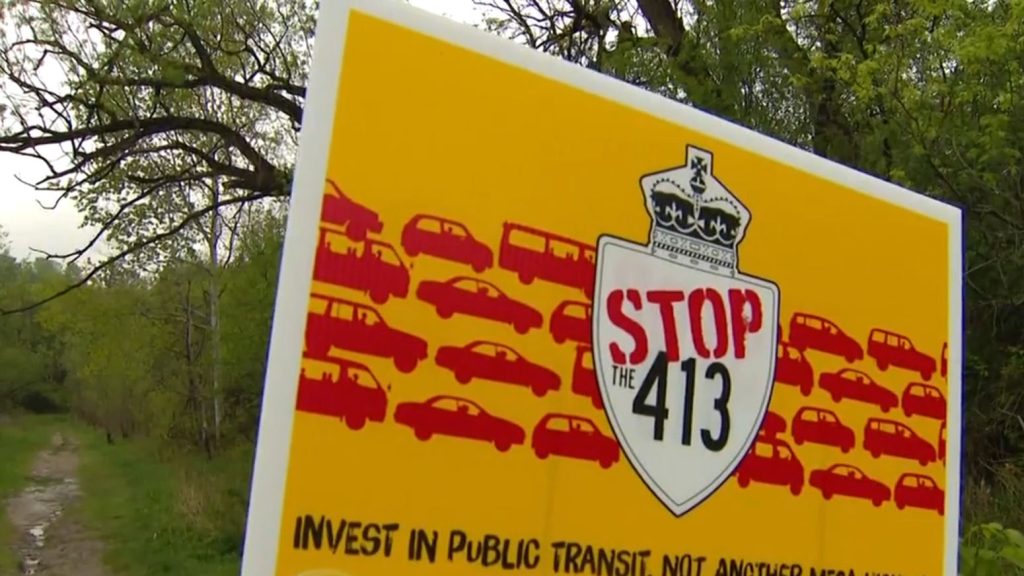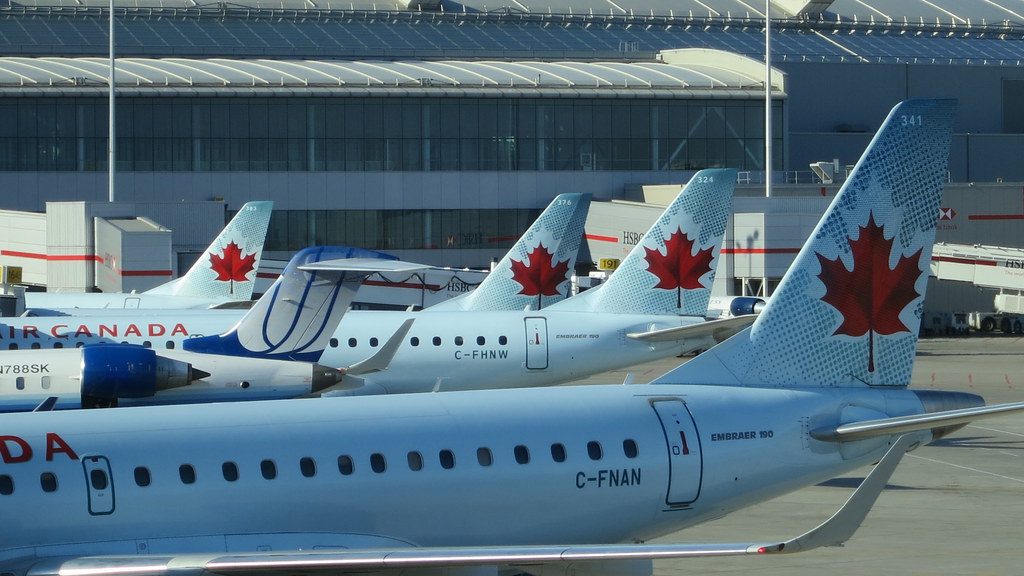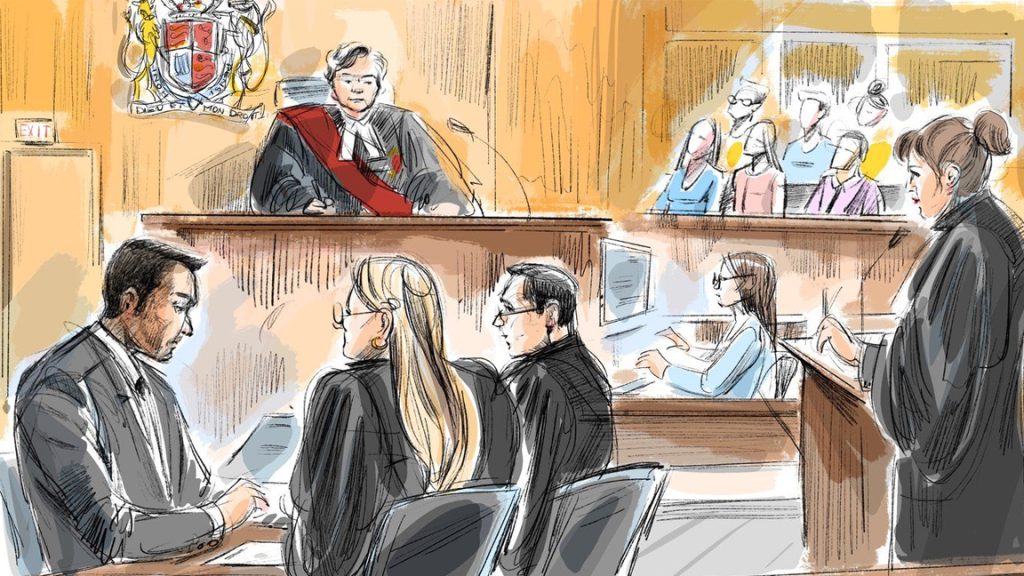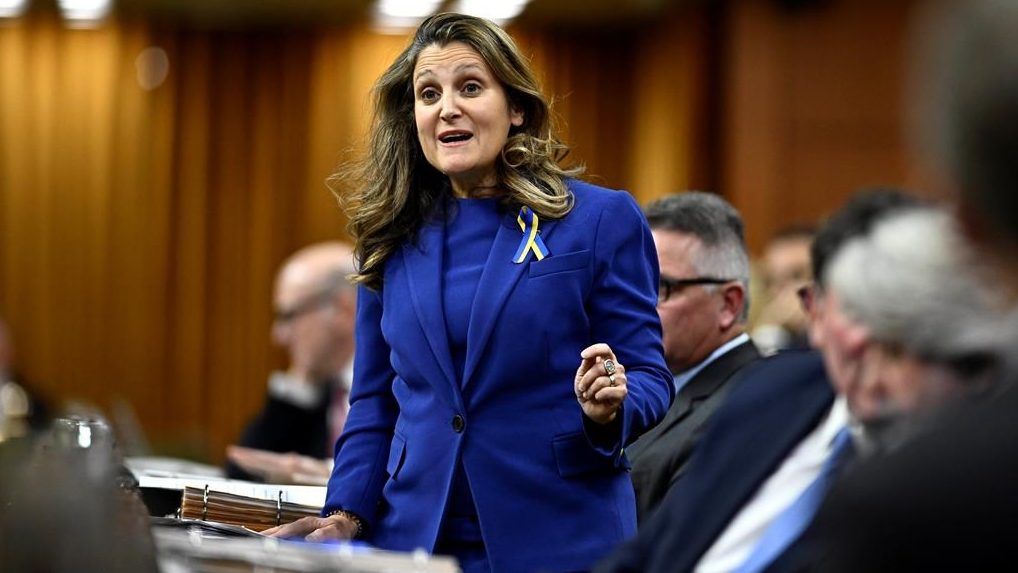Scheer promising carbon tax will be history by January if he gets majority

Posted October 17, 2019 5:31 am.
Last Updated October 17, 2019 6:04 pm.
Conservative Leader Andrew Scheer gave a glimpse Thursday of what kind of prime minister he might seek to be: one not tethered to conventions.
He promised to do whatever it takes to turn his marquee pledge to repeal the carbon tax into reality within his first 100 days in office, the first time he’s attached a deadline to the commitment.
“There is no time to lose,” he said during an event at a freight trucking company in Brampton, Ont., west of Toronto.
“We will use every available legislative tool to overcome any obstruction and delay so that we pass this legislation on time. Trudeau’s carbon tax will be history by Jan. 1, 2020.”
As a former Speaker of the House of Commons, Scheer is familiar with the tricks and strategies that governments can use to speed legislation into law.
As Speaker, he was also called upon at times to rule against or in favour of those efforts, many of which have previously proven controversial, including cutting off how much time MPs have to debate bills.
His promise on the carbon tax law came as opinion polls continue to suggest Monday’s vote will result in a minority Liberal or Conservative government.
Scheer has continually dodged questions about how he’d proceed with his platform if he forms government without a majority; all the other parties, for example, do not agree with his plan to cancel the carbon tax and would likely not vote in favour of the legislation he promised Thursday.
But the way the current bill is written, he might not even need a new law. According to the existing one, cabinet can set the pricing and where it applies, so, theoretically, a Conservative government could just amend the law to have a carbon price of zero that applies nowhere.
The party did not immediately respond to a question about why it wants a new law.
There’s also the question of whether Liberal Leader Justin Trudeau could continue on as prime minister even if his party wins fewer seats than the Tories in a minority government.
Parliamentary convention leaves room for that to happen – as the incumbent prime minister, Trudeau could still form a government and face the House of Commons if he can cobble together a coalition or a less formal arrangement with other parties to support him on confidence votes.
Scheer said Thursday he takes a different view.
“Obviously, what we are asking Canadians for is a strong Conservative majority mandate,” he said.
“It is the case that the party that wins the most seats in modern Canadian history has been the party that forms the government.”
Though he might be dancing around minority government convention, there is another political precedent he appears to believe in.
“The other convention in modern Canadian politics is that the prime minister who enters into an election and comes out of that election with fewer seats than another party resigns,” Scheer said.
Paul Martin did step down as prime minister after the Conservatives won more seats in 2006, allowing Stephen Harper to form his first minority government.
Scheer on Thursday reiterated his past warnings that a Liberal-NDP coalition would prove too expensive for Canadians.
Trudeau, meanwhile, repeatedly dismissed questions about a potential coalition.
“We are focused on electing a strong Liberal government that is going to be able to continue the hard work of fighting against climate change and investing in families. The choice is very, very clear for Canadians,” he said during a campaign stop in Trois-Rivieres, Que.
“We are going to elect a government with Liberal MPs from right across the country. We will continue the hard work of investing in Canadians.”
“Coalition” is not a dirty word, NDP Leader Jagmeet Singh said during his own campaign event as he railed against Canada’s electoral system that gives the candidate with the most votes the victory.
Singh also criticized Trudeau for breaking his 2015 campaign promise that that election would be the last under the first-past-the-post system.
He said the system means that less than half of voters can choose a certain party, “and they get all the power, and that’s wrong.” Singh said Canadians often feel their vote doesn’t matter, adding 60 per cent of Canadians “regularly” vote against the Conservatives.
“So it’s wrong for the Conservatives to think that with less than 40 per of the power – or vote – they deserve all the majority of power. That’s wrong,” Singh said in Welland, Ont., near Niagara Falls, where former MP Malcolm Allen is trying to take back his old seat.
Singh said he is committed to a “mixed-member proportional representation to make sure everyone’s vote counts.”
Green Leader Elizabeth May says talk of a coalition government in Canada is “premature” until after the election.
May says parties can plan to work together before ballots are cast in countries with a proportional representation electoral system, but such talk is “meaningless” in Canada’s first-past-the-post system.
“You don’t actually start talking about coalitions until the election is over,” she said in Qualicum Beach on Vancouver Island, where she was trying add to her party’s two seats – and its chances of being a player in any possible post-election balance of power.
“We’re prepared to work with and find ways to make Parliament work for Canadians. And to do that, Mr. Scheer is wrong in saying that he’s got a new way in how Parliament works in a minority. Mr. Singh is wrong, saying he will only work with the Liberals.”
Bloc Quebecois Leader Yves-Francois Blanchet reiterated his party’s position that it isn’t interested in propping up any minority government, and instead would be guided by one criteria: what is good for Quebec.
A day earlier, Blanchet offered more specifics.
“There is no question of the Bloc systematically supporting a government or a coalition or a party. It will be piece by piece. If it’s good for Quebec, we’ll be there,” he said on Wednesday.
“If the Conservatives decide to support us on the single tax return, it’ll go through. If the Conservatives imagine that the Bloc Quebecois will support the abolition of the carbon tax, it won’t happen.”
Scheer also suggested that under a Conservative government, he wouldn’t necessarily follow in Trudeau’s footsteps and put together a gender-balanced cabinet.
“We will have a cabinet made up of highly qualified candidates,” he said. “We will put the best people in the best jobs. We might even end up with more women in our cabinet depending on the results of Monday’s election.”
Scheer told Toronto radio host John Moore on Thursday morning that his party’s internal polling numbers are showing a majority, as the party polls exclusively in seats that can help determine who holds the balance of power.
“We are going to win on Monday. I am very optimistic,” he said
“There’s still a chunk of the electorate that is still undecided, still making up their mind, and we believe we have an edge on the types of issues they are looking at.”
But as Moore pointed out, some voters’ indecision is linked not to pocketbook promises but Scheer’s own beliefs. He pressed Scheer on his position on same-sex marriage, which Scheer has not clearly said whether he supports.
Moore said Scheer seems to hold an opinion that some relationships are “lesser.”
“I’ve been with my partner for 25 years – how is our marriage different from yours?” he asked.
Scheer said he supports equal rights, and also doesn’t judge how people live their lives.
“The only thing I am entitled to judge is Justin Trudeau’s record,” he said.
The same-sex marriage issue has followed Scheer throughout the campaign, nearly in tandem with questions about his position on abortion.
Scheer was to campaign later Thursday with a staunchly pro-life candidate. Journalists travelling with him were unable to attend due to what his staff called logistical issues around the need to move on to the next event in Nova Scotia.
There, Scheer is to campaign in the riding of Central Nova.
It’s a district with historical Tory ties, including being the longtime political home of former Conservative cabinet minister Peter MacKay.
If Scheer fails to form a majority on Monday, MacKay’s name is already being tossed around in connection with another form of political convention: the meeting where the Tories’ next leader will be chosen.










